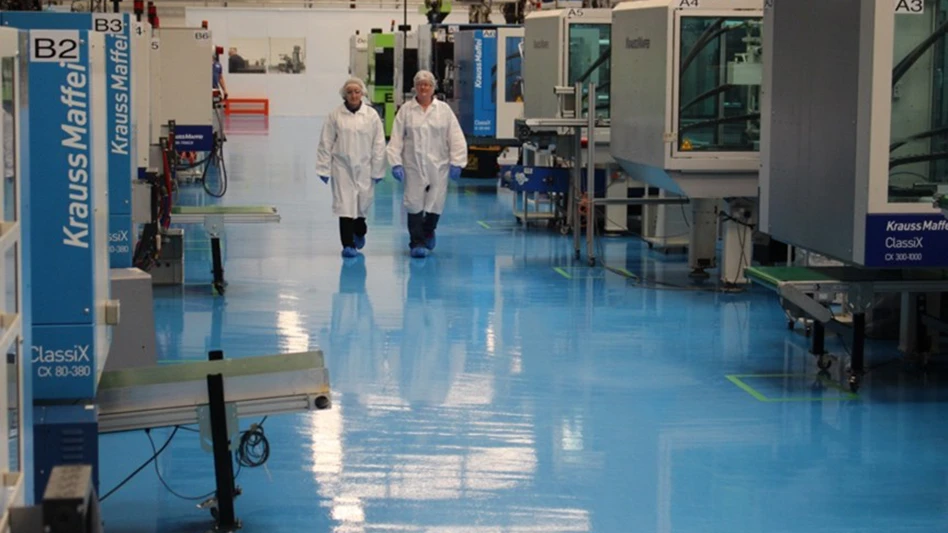 Users do not need to wear anything on their belt, offering many choices beyond just their abdomen for wearing the pump. Users do not need to wear anything on their belt, offering many choices beyond just their abdomen for wearing the pump. |
As medical care improves and people live longer, managing chronic disease becomes a more widespread and expensive problem. Type 1 diabetes is a chronic condition that can have serious consequences when patients cannot monitor and maintain proper blood sugar levels. According to the American Diabetes Association, 23.6 million children and adults in the United States – 7.8% of the population – have diabetes. Fifty-seven million people are pre-diabetic with 1.6 million new cases of diabetes diagnosed in people aged 20 years and older each year. In 2007, estimates put the total costs of diagnosed diabetes in the United States at $174 billion. The World Health Organization (WHO) estimates that there will not be enough hospital beds worldwide to treat chronic disease sufferers, increasing the need to manage these conditions outside of traditional medical settings.
The founding of Insulet Corp. came about when a father with a diabetic son decided to search for ways to improve the traditional insulin pump. An insulin pump replaces the multiple daily injections that diabetics usually have to give themselves. A pump also helps diabetics maintain steady insulin levels throughout the day. According to Insulet, insulin pump therapy gives superior clinical outcomes, but few Type 1 diabetics use them.
Explains Kevin Schmid, Insulet’s VP of operations and engineering, “These pumps are generally covered by insurance, and studies have shown that they have the fewest long-term complications. We saw an opportunity to develop a device that would simply make these people’s lives easier and healthier.”
 As the world’s first tubing-free insulin pump, the OmniPod utilizes the user-friendly personal diabetes manager (PDM) device. As the world’s first tubing-free insulin pump, the OmniPod utilizes the user-friendly personal diabetes manager (PDM) device. |
Insulet developed a design for the ultra-portable OmniPod insulin pump. Conventional pump therapy includes an insulin pump, reservoir, an infusion set, and tubing that connect the insulin pump to the infusion set – keeping the patient tethered to the pump 24/7.
“It definitely affects your quality of life, the activities and sports you can do, even the kind of clothes you wear,” Schmid says. “We knew we could do it better.”
The revolutionary OmniPod insulin pump design has only two parts: a wearable pod that delivers the insulin and a PDA-type device called a personal diabetes manager (PDM). The pod is in use by the patient for three days, then thrown away and replaced with another pod. It holds 200 units of rapid-acting insulin, which covers the requirements of almost 95% of Type 1 diabetes patients.
When it came time to find a silicon provider for their design, Insulet searched for a partner who could do a custom chip.
“We saw that Freescale had the right microcontrollers to control size and cost for the disposable pods, and RF connectivity for the PDM and pod to communicate wirelessly,” Schmid states.
Freescale’s microcontroller design consumes very little power and enables communication between the PDM and the pod using an integrated 13.56MHz radio.
“Through this technology alliance, we developed a product that meets the cost and reimbursement structure for the marketplace, in a disposable, fully-featured device,” Schmid says.
|
Challenge: Solution: Benefit: |
Finding the Right Technology Partner
Semiconductor technology plays a critical role in the development of new technologies to assist with patient monitoring, diagnostics, therapy, and imaging. Medical device designers need to balance processing requirements with power consumption, ensuring a fast time to market while navigating the regulatory environment. Freescale is a trusted provider of microcontrollers, microprocessors, analog and sensor components, RF amplifiers, and wireless technology to meet the unique needs of medical designs. These vital technologies, along with Freescale’s enablement tools, expertise, and partnerships, help enable customers to develop breakthrough medical systems and life-critical applications. Freescale also offers a formal product longevity program for the medical segment, ensuring that a broad range of program devices will be available for a minimum of 15 years.
.gif) Users can wear the small, lightweight OmniPod insulin pump anywhere on their body that they would take an injection. Users can wear the small, lightweight OmniPod insulin pump anywhere on their body that they would take an injection. |
Expertise for the Long Term
In the OmniPod insulin pump, fully automated catheter insertion takes place in five milliseconds, and is virtually pain-free. The pump starts and primes itself automatically and is watertight to 25ft for one hour. The PDM is a user-friendly device with a color screen that wirelessly programs and manages insulin delivery profiles and interaction with the pod. The PDM includes a built-in blood glucose monitor – which Freescale also helped integrate – that replaces the traditional finger-pricks to test blood glucose levels. A bolus calculator for extra insulin doses, a USDA food library to help manage what you eat, and full data management and download capability complete the PDM’s features.
To date the company has produced more than 7.5 million pods and increases capacity almost daily. The OmniPod insulin pump also has use for infusing other drugs subcutaneously.
Schmid notes that, “this growth is entirely attributable to our differentiating technology, and we have Freescale to thank for a significant part of that.”
 Freescale Semiconductor was able to deliver the technology that Insulet required to offer a superior product to its user. Freescale Semiconductor was able to deliver the technology that Insulet required to offer a superior product to its user. |
Insulet is developing a second-generation OmniPod insulin pump. The new device will be 42% smaller while maintaining all current features. A higher level of printed circuit board integration allows component count reduction from 40 to 22. Moving to 433MHz RF will increase the communication range from 3ft to 10ft. The new MCU consumes much less power, reducing the battery requirement from four to three. This greater integration helps Insulet lower their costs by about 30%, and the reduced size and weight benefits patients by making the device even easier to wear.
“We hear one thing from our customers every day: ‘OmniPod has changed my life.’ Parents say that their kids can eat when they want and lead regular, active-kid lives. Athletes can get back to the sports they love,” says Insulet’s Schmid. “Ultimately, our goal is to provide superior treatment options for people with diabetes – and to make diabetes an ever smaller part of life.”

Freescale Semiconductor Inc.
Austin, TX
freescale.com/medical

Explore the June 2012 Issue
Check out more from this issue and find your next story to read.
Latest from Today's Medical Developments
- Boston Scientific to acquire Penumbra, expanding cardiovascular portfolio
- Star Cutter introduces Double Pilot Reamer
- #80 Manufacturing Matters - Machining Strategies to Save Time and Improve your Process for MedTech Components with Kennametal Inc.
- Real-world parts and expert manufacturing advice
- Experts discuss the latest in toolholding technology
- How permanent magnets are powering medical innovation
- Forecasting the year ahead in design and manufacturing
- Tecomet, Orchid Orthopedic Solutions announce merger agreement





